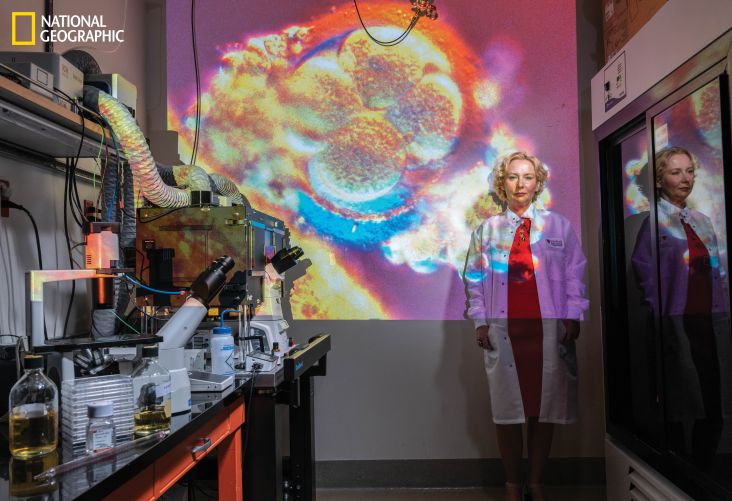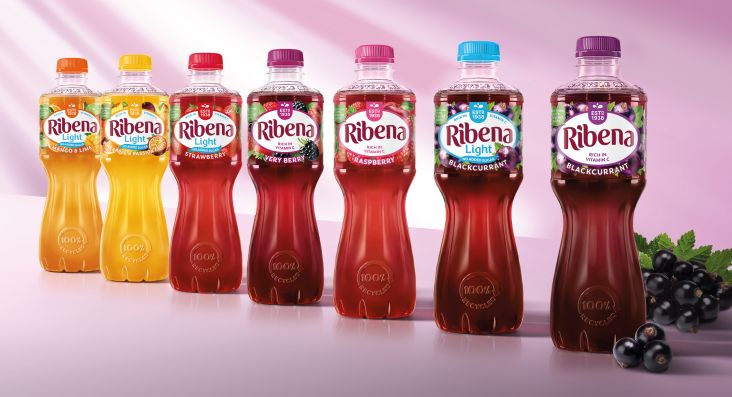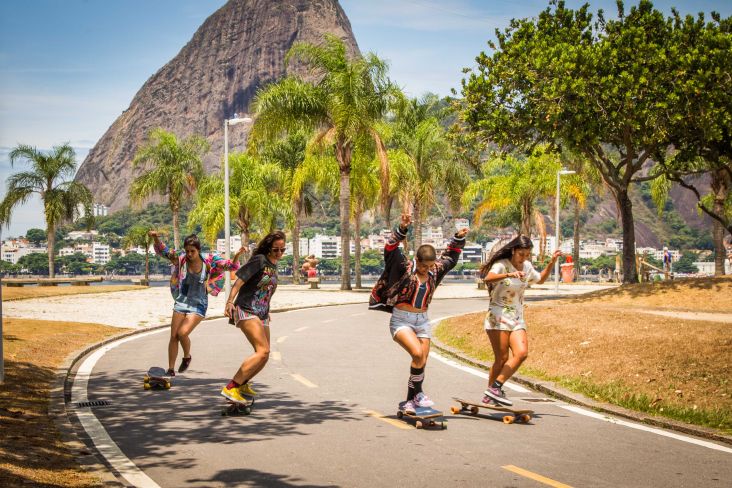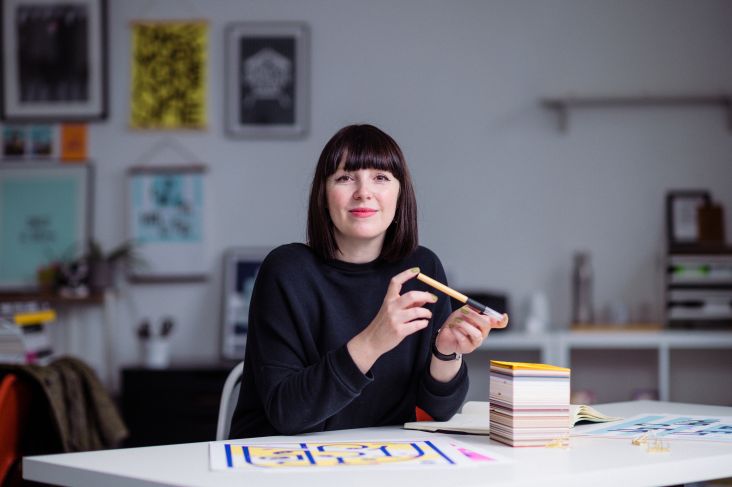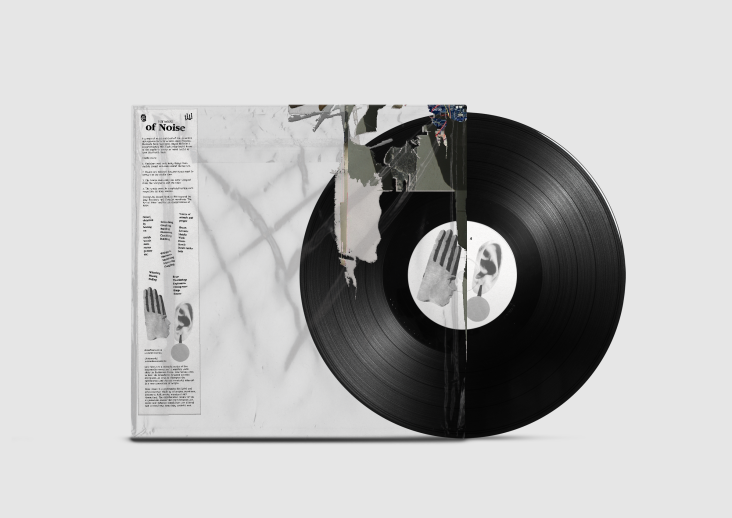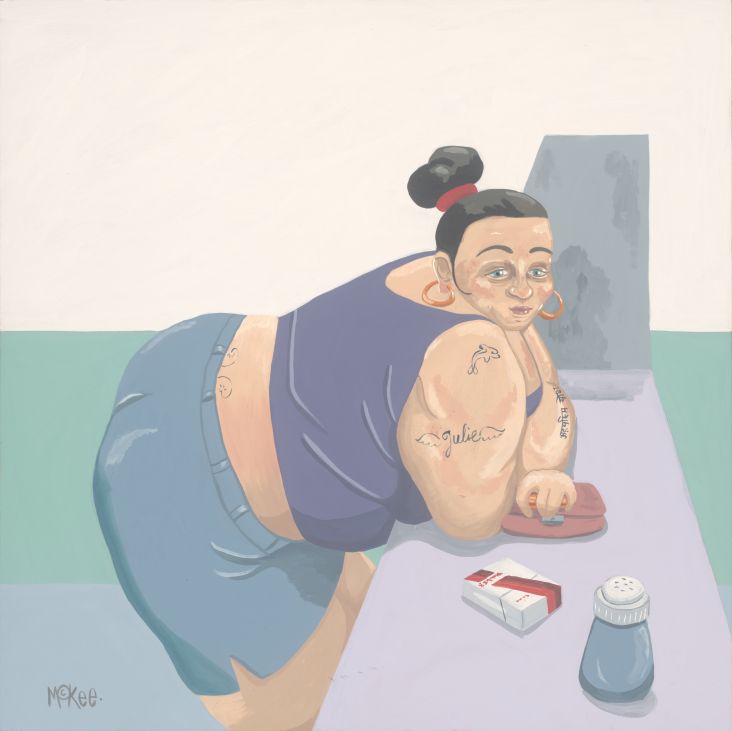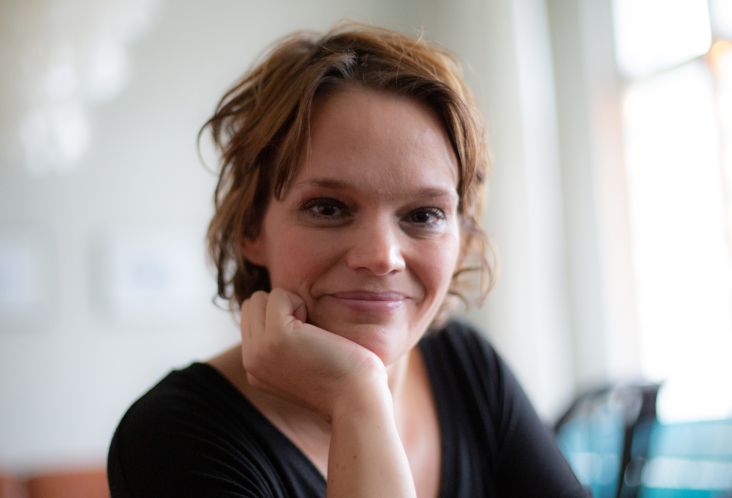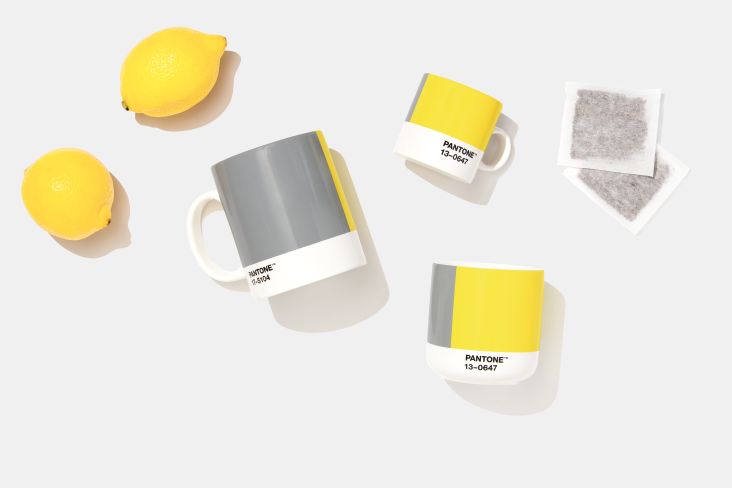Azarra Amoy on art and activism, and why we all have the power to make positive change
Azarra Amoy has had quite the year. The London-based multi-disciplinary artist has just wrapped up designing the MTV EMA Awards for its Generation Change category, a pretty special award that recognises young people who are driving positive change. The five recipients come from all over the world and are described by MTV as "global and local change-makers".
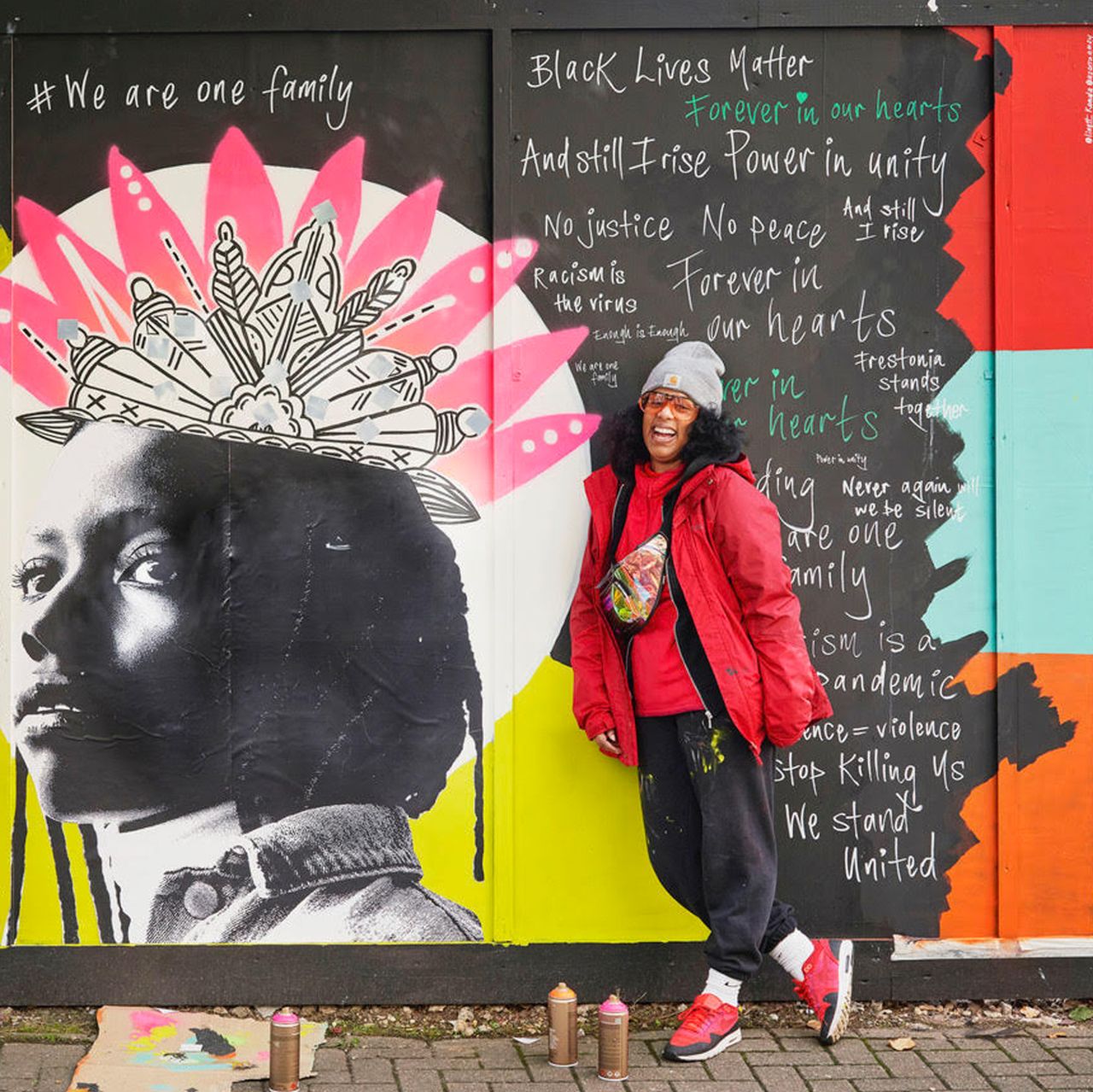
Azarra Amoy. Photo credit: Edwin Ingram
Inspired by the winner's personal histories and activism, each of Azarra's one-off hand-painted designs celebrates their powerful work on the frontlines of the fight for racial and social justice across the globe.
It's just one of many recent memorable projects for Azarra who has also brought art to local communities with inspiring public murals, as well as helped brands like Adidas to enhance and cultivate stories and messages for its audiences. We sat down with Azarra virtually to discuss the highs and lows of 2020, whether change is happening, and how art has the power to transform lives.
Tell us more about the MTV EMA Awards and its Generation Change category. Can you explain your inspiration behind the designs?
I hand-painted each award, and I was inspired by the winner's personal histories and activism. Each winner was a woman of colour, and they are on the frontlines doing the grassroots work in their communities and influencing and inspiring others to do the same. I wanted to create something meaningful for each of them, so the concept for the designs was intertwined with their personal history, achievements and activism.
For example, Raquel Willis was one of the five recipients of the Generation Change award and is a transgender activist and previous executive editor of Out magazine. I painted the entire award the colours of the BlackTrans Pride Flag to highlight Raquel's enormous dedication in using her voice to fight for the most marginalised.
I also wanted to capture her self determination and painted a picture of her wearing a top saying "I'm gonna win". I think it is a great and simple affirmation for those who are fighting for justice and equality in our respective quarters.
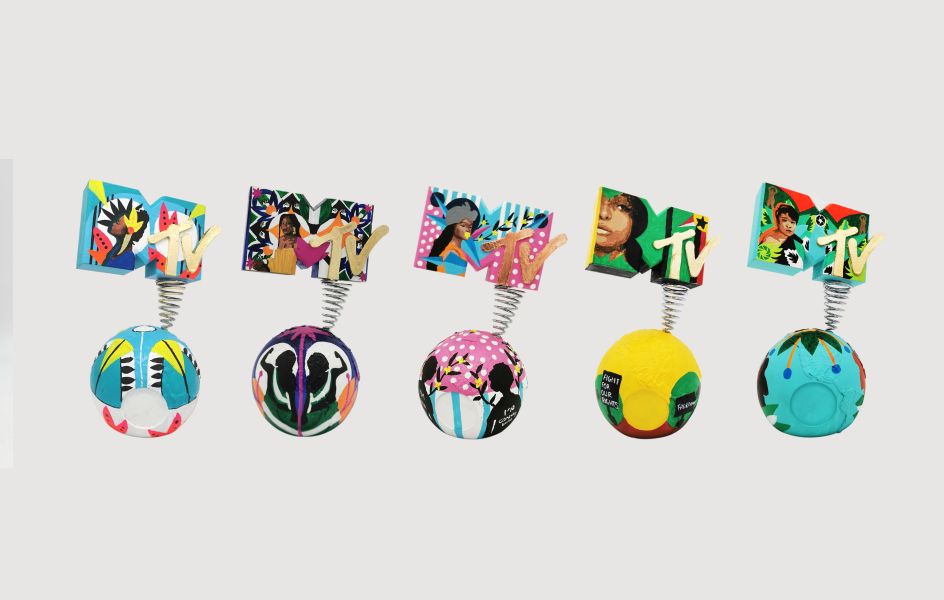
MTV EMA Awards for the Generation Change category
Another recipient was Temi Mwale a racial justice campaigner and the founder of the 4front project, a membership-led organisation helping young people and communities to fight for justice, peace and freedom.
For her award, I took inspiration from fine artist David Hammond who created variations of the Pan-African Flag. I then added in a variety of symbols to showcase Temi's work, such as speakerphones and protest placards on the backdrop of blocks of flats, illustrating how Temi uses her voice to advocate for the vulnerable and hold those with power to account.
I personally think that each of the winners is doing work that is life-saving for the communities that are impacted by racism, sexism, transphobia, colourism, fatphobia, classism. There are so many ways it is hard to exist in the world as a woman of colour. The fight for equality has to be intersectional, and I happy to champion these women through my Art.
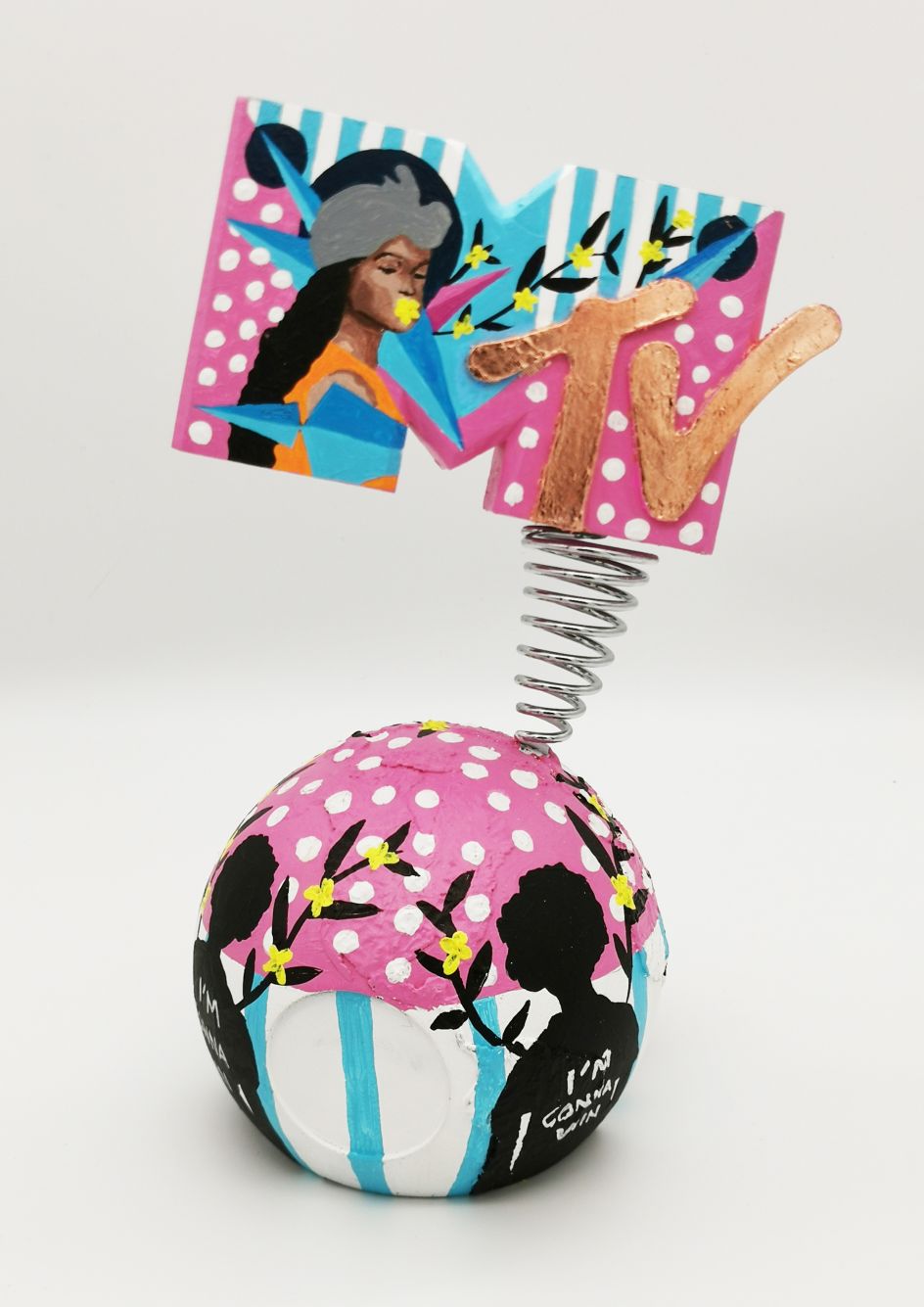
Raquel Willis Award
How have you coped yourself this year?
During the first lockdown, I developed a great routine, meditating in the morning and going for long walks. My art studio was still open coupled with the rules of social distancing it allowed me to spend time in solitude creating and really thinking about the intentions I have for my work and the feelings I want to invoke in viewers of my work. I also spent time creating digital collages; it takes my mind of the world.
In the next few months, I am excited to start working with different materials such as lights, clay and found objects. I also attended some great art lectures through the Black Blossoms School of Art and Culture. Being creative and immersing myself in creativity is how I cope.
You and Linett Kamala were behind the BLM mural in North Kensington this year. How did it feel to be part of such an important artwork?
The 'We Are One Family' mural for #BLM was created by myself and Linett Kamla, and curated by Bolanle Tajudeen. It highlighted such an important historical legacy.
Freston Road, use to be home to the Frestonia's, they were a community of squatters who were faced with eviction and found a legal loophole and applied to the United Nations to be recognised as an independent state from Greater London, declaring to the world 'We Are One Family'. We used this local history as a starting point to imagine what a safe state for black people would look like.
In doing so, we created a piece of artwork that uplifts the community by showing them that they have the power to be changemakers if they come together like the original Frestionian residents and not remain silent on the Black Lives Matter campaign and stand in solidarity with those affected by systemic racial injustices. You can read the full curatorial statement here.
I feel so proud to have made this work, although creating work in Britain outside in the winter is the most challenging thing I have done. Every time I am tagged in pictures from people who are walking past the mural, I see something new as I am looking at it through their eyes and own reactions.
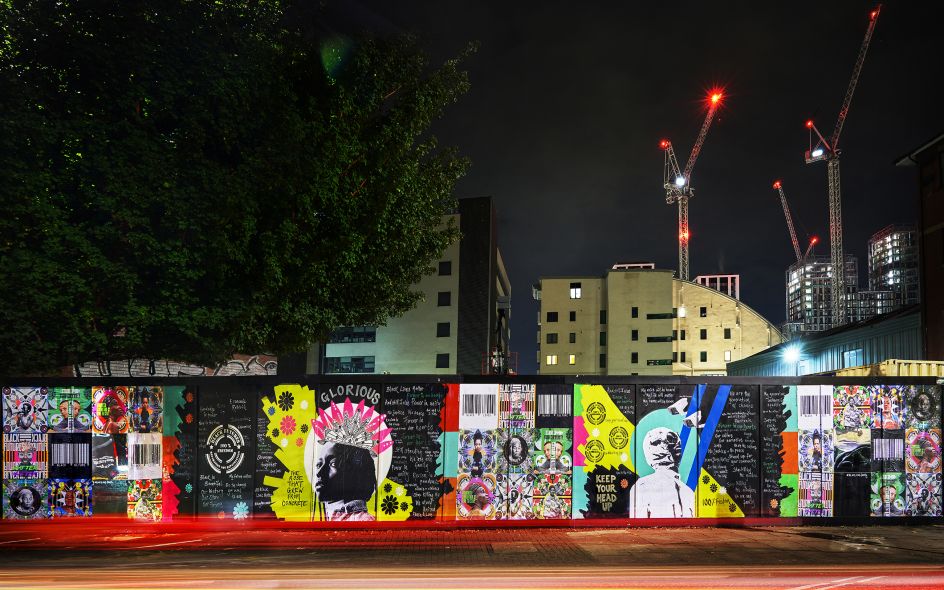
'We Are One Family' mural on Freston Road section at night by Azarra Amoy & Linett Kamala - Photo credit Edwin Ingram
Do you feel change is happening and representation is being addressed now?
Change is not happening fast enough. A parliamentary report found that black people's human rights are not being protected in the UK. The statistics highlighted in the report were frightening, and it shouldn't be like this. I should not feel afraid that public services may let me down because I am a black woman.
Representation means a lot, and it also means nothing at the same time.
The current government cabinet is racially diverse, but there has not been any policies or laws made that want to embed true racial equality in British society. However, where the government falls short, I have faith in individuals to educate themselves by reading, listening to podcasts which discuss the lived experiences of people of colour living in Britain, and also I think people should specifically listen to those who are working in the same industry as themselves. So for example, I think all creative professionals should be listening to Revision Path, a podcast which is an award-winning weekly showcase of black designers, developers, and digital creatives from all over the world.
So tell us more about your background. Did you grow up in London?
Yes, I was born and raised in London. Both my parents moved to England when they were young from Jamaica (mother) and Trinidad (father). Me and my siblings are the first generations born here, so the West Indies heavily influenced our upbringing. My parents and grandparents had to hustle and make this work in the UK. The hustle lifestyle could be said to have pushed the creativity that I'm surrounded by. If you couldn't afford something, you would learn to make it yourself.
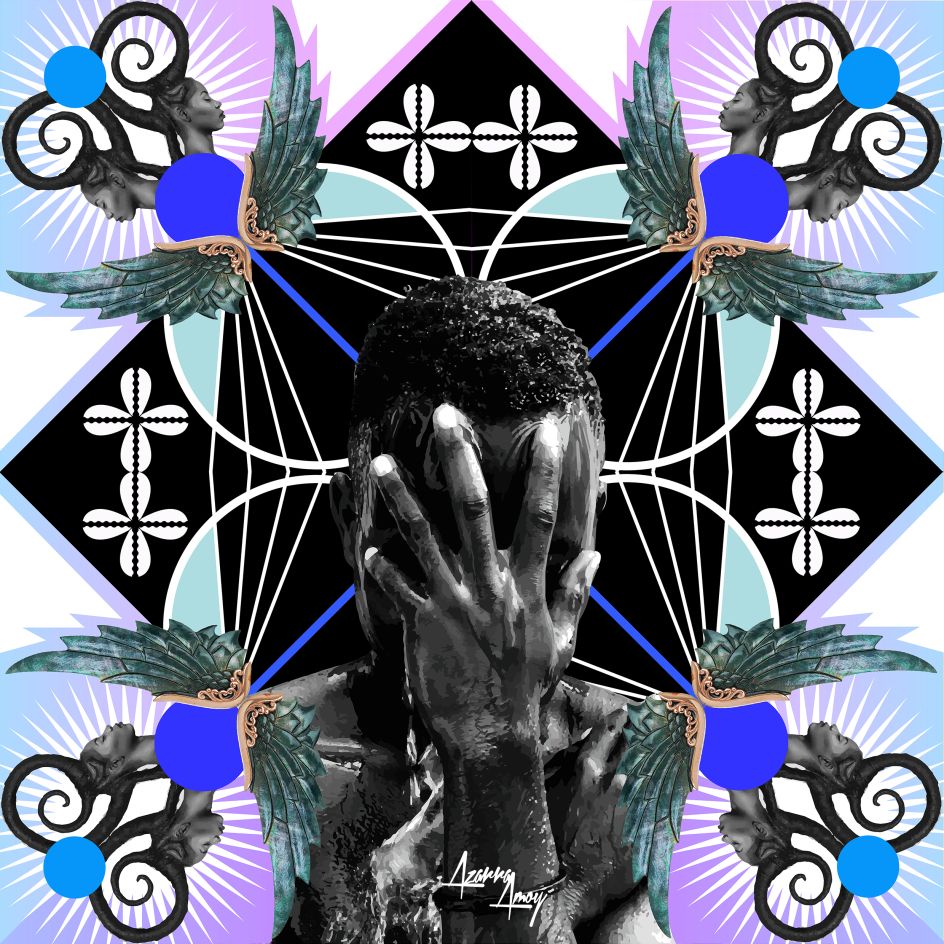
Had you always been creative?
Yes, I have, both of my parents are creatives. It was something that was encouraged during my childhood. Always had little projects to keep myself entertained, and it continued into my adulthood. I wasn't really aware of how vital it was to my everyday routine until I went to work aboard in Bangkok to do a non-creative job. I found myself getting really down all the time, and I couldn't put my finger on what was wrong until one day it hit me that I haven't drawn or made something since I arrived. I went to the nearest art suppliers and brought everything in sight. From that moment, I haven't looked back, and I've been taking my practice seriously ever since.
What have been the biggest lessons you've learnt as an artist so far?
Don't create work that you think people will like. Stay authentic to me and my practice.
How do you feel about the future?
I'm optimistic and positive about the future. All I can do is continue to create and adapt to whatever life throws at me. We move.




 by Tüpokompanii](https://www.creativeboom.com/upload/articles/58/58684538770fb5b428dc1882f7a732f153500153_732.jpg)


 using <a href="https://www.ohnotype.co/fonts/obviously" target="_blank">Obviously</a> by Oh No Type Co., Art Director, Brand & Creative—Spotify](https://www.creativeboom.com/upload/articles/6e/6ed31eddc26fa563f213fc76d6993dab9231ffe4_732.jpg)








